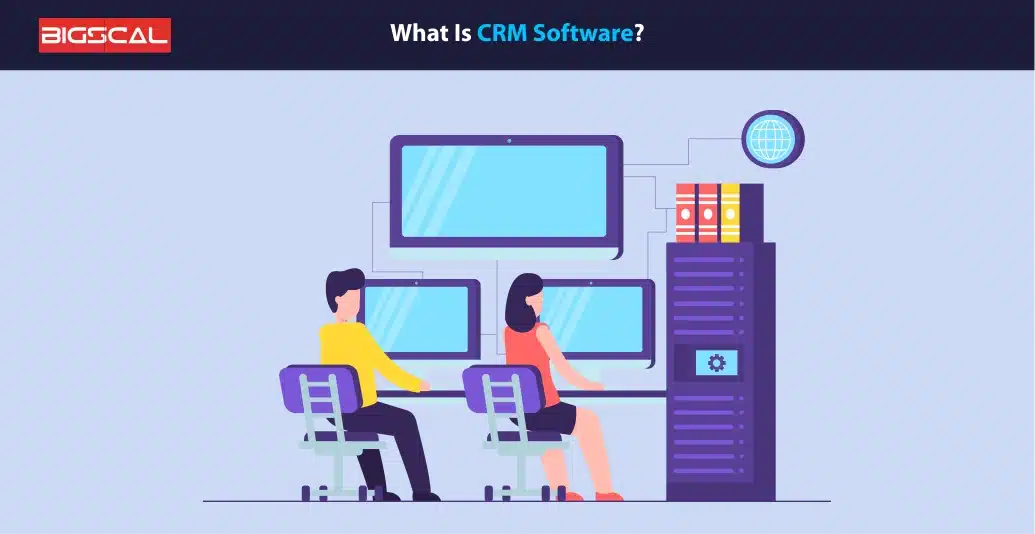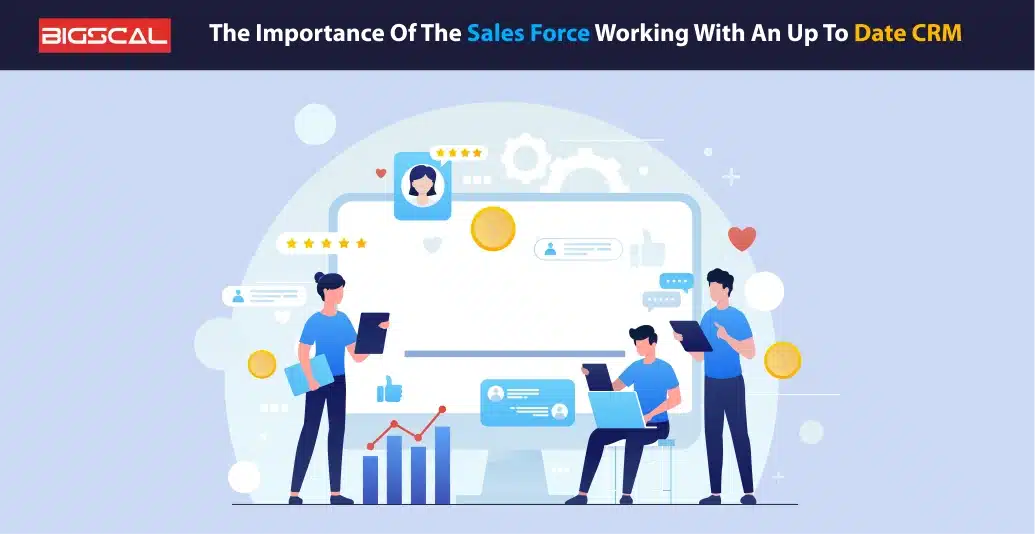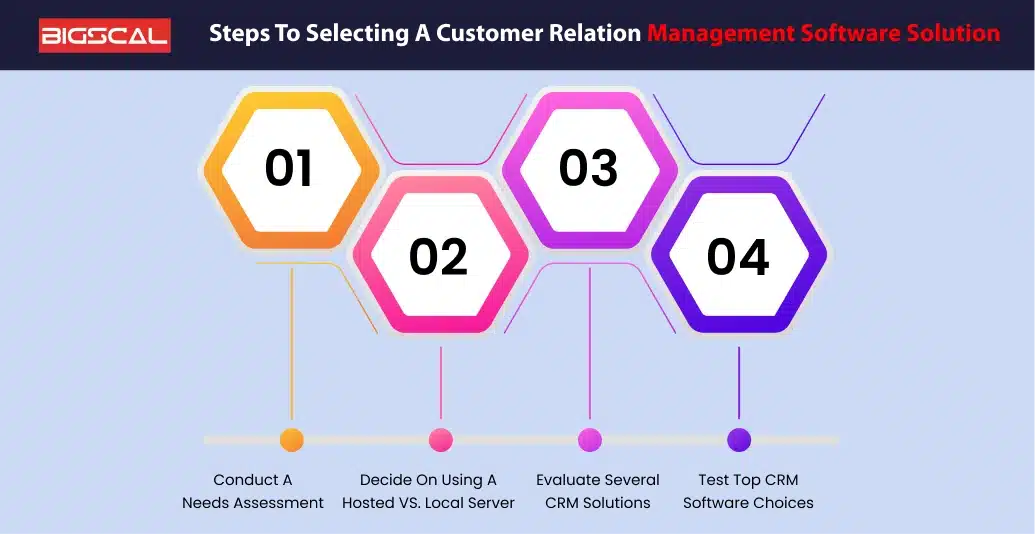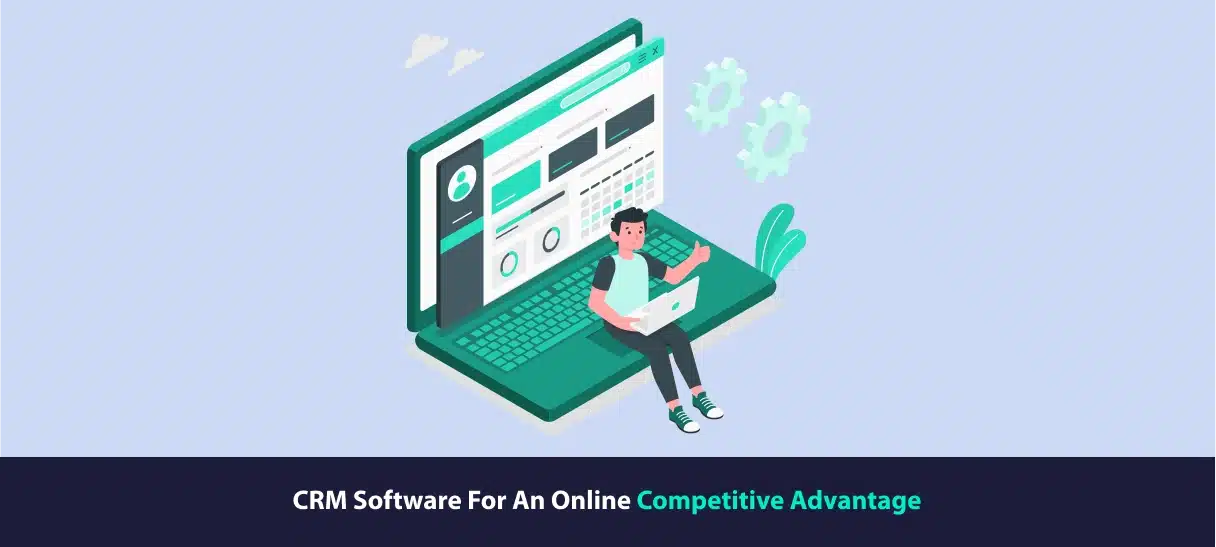How to Choose CRM Software for an Online Competitive Advantage
Quick Summary: Learn how to make your online advantage with the best CRM software. Discover key features and benefits, along with some great tips for choosing the perfect solution to fit your needs. Transform your customer relationships into better engagement and sale growth with the right strategy in CRM for online success.
Introduction
Customer Relation Management (CRM) software is gaining popularity as it provides online businesses with a key competitive advantage of decreasing the number of customers it loses and increases its customer retention. In addition, e-commerce businesses that invest in a CRM solution can reduce both sales and customer service costs, as well as enhance the business with more detailed insight into its customer base.
What is CRM Software?

The software is generally a database provided by a good custom software development firm where sales and marketing teams can store critical customers’ account data. This includes contact information, source of the lead, sales representative name and activity history, customer purchase history, projected revenue per customer, and marketing campaign data.
Businesses can use CRM consulting services to analyze their data easily at different angles, for instance, it can generate revenue forecasts for a product, sales rep, or company-wide. It can also track revenue to a specific marketing campaign or sales representative, view the number of leads generated within each step of the company’s sales process, track the progress of set goals and manage marketing campaigns, and capture leads from its website. In all, businesses can see which sales reps and marketing campaigns are the most effective, understand customer behavior, plus increase customer loyalty and customer retention.
Why Do Businesses Need CRM?
For the sole trader, a CRM software tool is an essential solution to the continuous communications with customers and potential customers. With so many other tasks it can be too easy to forget what was promised to whom; for when and for how much. When the business is large enough for a sales force then the customer relations management task becomes much more complex and it is even more critical that the exchanges are recorded. The CRM software makes it possible to manage customers as each member of the team is able to see what happened at each meeting.
The Problems Maintaining the CRM Information
After installing and setting up the customer information and configuring the relationships, the problem of maintaining the data begins. Whether the CRM tool is easy or hard to use, the biggest hurdle is to ensure that everyone, especially the sales force, understands the importance of keeping the information up to date, and to make this a priority.
The Importance of the Salesforce Working With an Up to Date CRM

The CRM software solution is the key tool for the sales force and so if this is even a single email or telephone call out of date then it could cause embarrassment or worse problems. The salesperson will need to know the details of the latest communications with the customer if they are to manage the customer relationship effectively.
Online CRM Versus Local Customer Relationship Management
There are various ways to use a CRM tool including an application installed on a single computer; a server-based solution on a local area network; an intranet-based service or using an internet service provider. A sole trader may consider a single installation but it is often the case, even when only one user, that internet Customer Relation Management software is the best solution. The ability to access it from anywhere and have a professional backup and archive service is very attractive. It is also desirable to have a full software development program to keep the functionality up to date and fully featured.
Steps to Selecting a Customer Relation Management Software Solution

Since one-size fits all CRM solutions do not exist at this point in time, businesses must understand how to select the right CRM software that fulfills their particular needs. If after going through these steps, an appropriate CRM software cannot be found then the business should consider investing in a customized solution.
1. Conduct a Needs Assessment.
Outline the reasons why CRM software is needed and what the business hopes to accomplish when implementing this solution. Each CRM solution offers some of the same basic features, yet has different functions that may satisfy some businesses but not others. Knowing ahead of time which features are most important to the company before searching is key to quickly finding one that fits the business’s specific needs. For businesses undertaking complex academic or organizational tasks, seeking capstone project help can serve as a practical example of leveraging expertise to achieve targeted outcomes. For example, features a business could require are:
- Analyze the purchase history of customers to determine the most frequently purchased products by similar customers.
- Determine the likelihood that a customer will purchase a particular product.
- Communicate with the call center in order for them to have the appropriate data on hand.
Furthermore, determine which departments will benefit from having implemented a CRM solution, such as customer service, sales, and marketing. Review the current processes that are in place, the information that is share between departments, and what is needed to improve efficiency. It is helpful to map the business process that already exists to determine if there are processes missing or that can be improve.
2. Decide on Using a Hosted vs. Local Server.
In the past, most businesses have opted for having the CRM software hosted on their own servers for security purposes. However, as technology and security have advanced, companies have opted to place their information in the cloud. One popular software that uses the cloud is Salesforce, in which businesses do not have to install software onto their computers or worry about costly and time-consuming updates.
3. Evaluate Several CRM Solutions.
Research at least three solutions and compare their features, capabilities, and customer support availability. Ensure that each CRM solution touches on the list of needs created in Step 1 and that it offers the appropriate level of support and upgradability that the business requires. Even though it may list the features the business requires, ensure that those features are readily available or if it is only available after customizations are made. Additionally, consider platforms where you can seek such requests as do my assignment online to evaluate their integration capabilities with CRM tools, as they might streamline operational tasks.
Provide the IT department with the list of the top choices in order for them to address any technical issues, such as database compatibility and response times. If the business comes down to two vendors and one of them closely aligns with its existing technology infrastructure then that vendor should be the winner.
4. Test Top CRM Software Choices.
Most CRM solutions offer free trials or demos, be sure to take advantage of these to get a first-hand account of how the software works. In addition, if the business does not have a strong IT department, then find out if the software offers support for integration. While testing the products, take note of the following:
- The desired features and functions that the business needs do exist.
- The product works within the company’s current technological infrastructure.
- It is easy to use and navigate.
- Ensure that the most commonly used functions are automate, or determine which product has the most automation – to reduce the time the employees must spend daily and reduce chances of errors.
- Test the software with data to ensure there are no complications.
Conclusion
In other words, it is the art of competitive online business to choose appropriate CRM software. Choose terms of features based on your needs for automation, analytics, and integrations. Easy to use, scalable, with quality customer support, thus ensuring seamless implementation and further success. With the right CRM, you get to know your customers better and enable engagement to drive growth in the competitive digital landscape.







